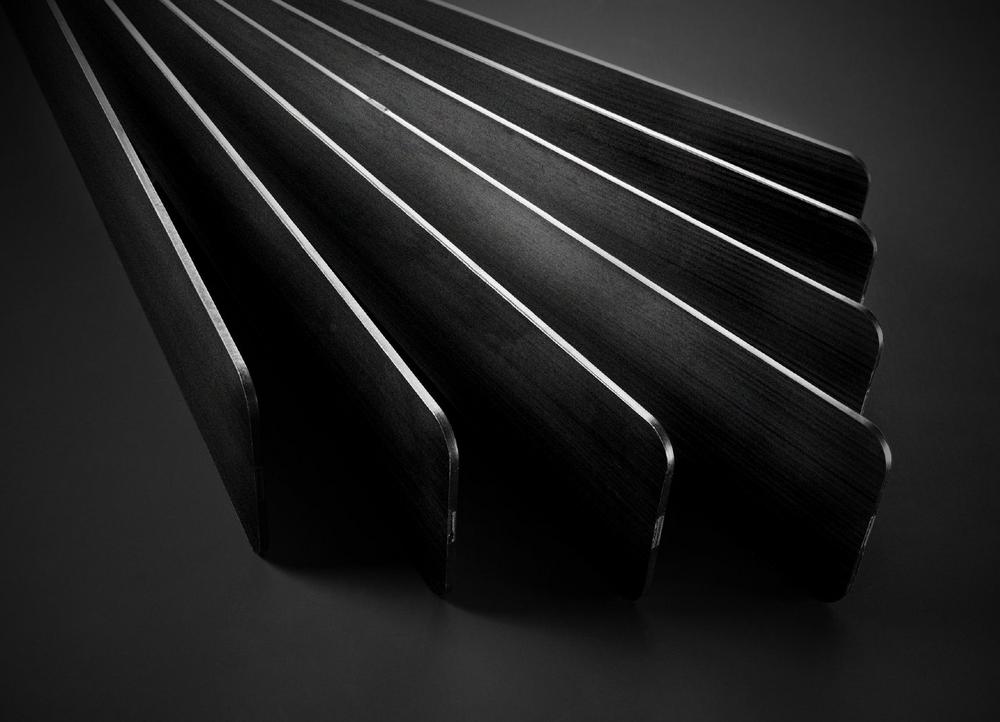- Carbon-fiber reinforced polyphthalamides (PPA) with outstanding mechanical properties for the replacement of aluminum and magnesium
- For structural automotive applications, consumer electronics and loaded industrial equipment
BASF is now expanding its polyphthalamide (PPA) portfolio of Ultramid® Advanced with carbon-fiber reinforced grades with fillings of 20, 30 and 40 percent. The benefits of these new materials: They make for extremely lightweight parts, can safely replace aluminum and magnesium without loss in stiffness and strength and are electrically conductive. The new grades combine these properties with the advantages of Ultramid® Advanced N (PA9T) which makes them unique among carbon-fiber reinforced PPAs already available in the market: high dimensional stability due to low water uptake, excellent chemical and hydrolysis resistance, high strength and modulus. The new carbon-fiber (CF) reinforced grades can be used to manufacture automotive structural parts for body, chassis and powertrain, for pumps, fans, gears and compressors in industrial applications as well as for stable and ultra-lightweight components in consumer electronics. With this offering, BASF complements its PPA portfolio of more than 50 grades already available on the market.
The mechanical performance of the new carbon-fiber reinforced PPA grades can be tuned by the choice and the content of the carbon fiber as well as by the additive technology. Ultramid® Advanced N3HC8 with 40% carbon fiber filling shows a better strength and modulus at 80°C (conditioned) than magnesium or aluminum. "Our new PPA compounds with carbon fibers are the ideal metal replacement", says Michael Pilarski from PPA business management at BASF. "And this not only from a material property point of view. Lately, we have seen safety issues at magnesium producers in different countries, which makes the supply rather unpredictable. Producing parts out of magnesium or aluminum also requires additional post-processing and tooling which increases system costs. Given the opportunities for 25 to 30% weight reduction with our new PPA grades, we can offer a safe, cost-efficient and high-performance alternative for parts traditionally manufactured from metal."
Combining these new materials with BASF’s simulation software Ultrasim® to correctly model part behavior and optimize mold geometry, the Ultramid® Advanced CF grades can thus contribute to functional integration and weight reduction in different industries: the range of cars with e-drive or fuel cell engines can be increased by weight reduction of structural or powertrain parts; lightweight, thin precision structures in consumer electronics benefit from the high stiffness and strength, the excellent dimensional stability as well as the extremely low weight and the good processability of the new PPA materials; heavy, highly loaded and long-lasting industrial equipment like pumps and compressors can be easily produced because of the good dimensional stability as well as the high chemical, heat and abrasion resistance of the new CF grades.
The carbon-fiber reinforced PPA compounds also show a lower weight and higher tensile modulus than glass-fiber reinforced polyamides (PA) with similar reinforcements. PPA grades reinforced with 20 wt% carbon fibers are about 20wt% lighter than PA6 or PA66 filled with 50% glass fibers. The tensile strength of a 20% carbon fiber reinforced Ultramid® Advanced compound is either better or equivalent to a glass fiber reinforced polyamide filled with 50% while showing better processability. Ultramid® Advanced N3HC8 e.g. is very stable after ageing at high temperatures: It retains nearly 100% of its tensile modulus after heat aging at 120°C for 5,000h or at 150°C for 3,000 hours.
About Ultramid® Advanced
BASF’s polyphthalamide portfolio is based on the four polymers Ultramid® Advanced N (PA9T), Ultramid® Advanced T1000 (PA6T/6I), Ultramid® Advanced T2000 (PA6T/66) and the long-standing Ultramid® T KR (PA6T/6). They open the door to the next generation of lightweight, high-performance plastic components in many different sectors including the automotive industry, electronics and electric devices, mechanical engineering and consumer goods. The PPA portfolio is available globally and complemented by BASF’s Ultrasim® simulation tool and extensive experience in application development. It includes more than 50 compounded grades for injection molding and extrusion, products with or without flame retardants. The compounds are available in different colors, from colorless to laser-markable black, with short-glass, long-glass or carbon fiber reinforcement, and with various heat stabilizers.
Further information: www.ultramid-advanced-n.basf.com and www.ppa.basf.com.
At BASF, we create chemistry for a sustainable future. We combine economic success with environmental protection and social responsibility. More than 117,000 employees in the BASF Group work on contributing to the success of our customers in nearly all sectors and almost every country in the world. Our portfolio is organized into six segments: Chemicals, Materials, Industrial Solutions, Surface Technologies, Nutrition & Care and Agricultural Solutions. BASF generated sales of €59 billion in 2019. BASF shares are traded on the stock exchange in Frankfurt (BAS) and as American Depositary Receipts (BASFY) in the U.S. Further information at www.basf.com.
About BASF’s Performance Materials division
BASF’s Performance Materials division encompasses the entire materials’ know-how of BASF regarding innovative, customized plastics under one roof. Globally active in four major industry sectors – transportation, construction, industrial applications and consumer goods – the division has a strong portfolio of products and services combined with deep understanding of application-oriented system solutions. Key drivers of profitability and growth are our close collaboration with customers and a clear focus on solutions. Strong capabilities in R&D provide the basis to develop innovative products and applications. In 2019, the Performance Materials division achieved global sales of €6.06 bn. More information online: www.plastics.basf.com.
BASF SE Kommunikation BASF-Gruppe
Carl-Bosch-Straße 38
67056 Ludwigshafen
Telefon: +49 (621) 60-0
Telefax: +49 (621) 60-42525
http://www.basf.com
BASF SE Kommunikation BASF-Gruppe
Telefon: +49 (621) 60-42241
Fax: +49 (621) 60-49497
E-Mail: ulla.biernat@basf.com
![]()
